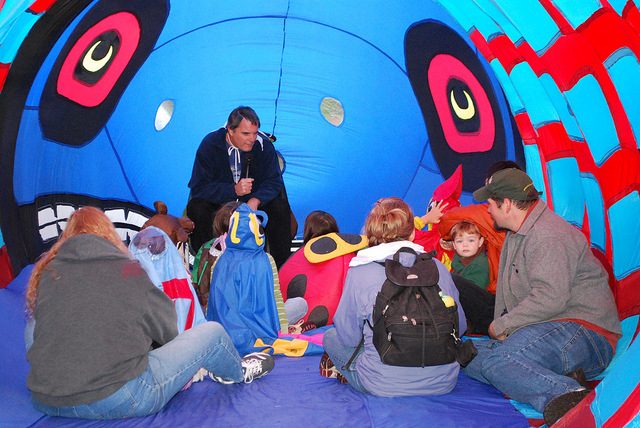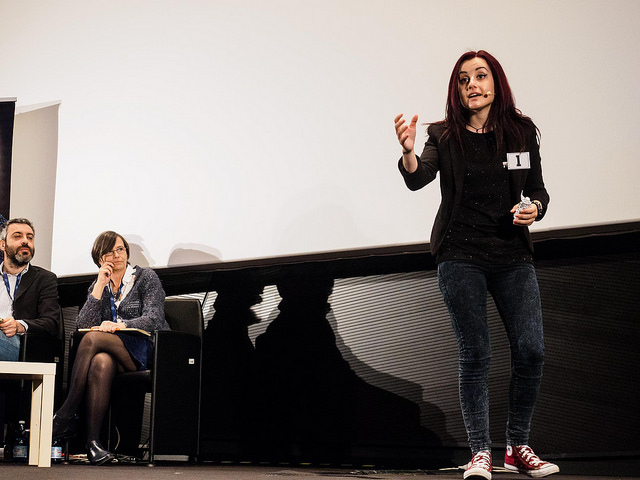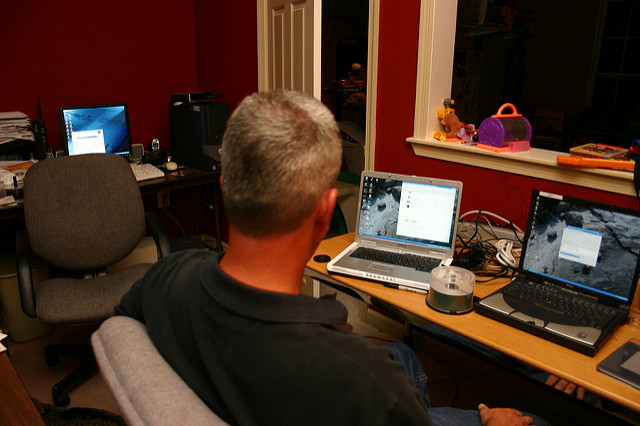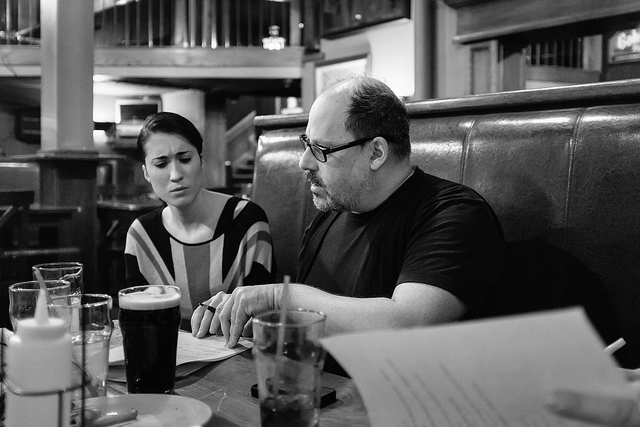Allan soured his face as I explained his duties as the bus driver for today: keep your phone on. Answer the calls. Make sure you’re constantly looping back here from LAX — don’t just stay at the airport.
He had this “I-can’t-believe-my-lot-in-life-is-driving-a-bus” expression on his face. The sentiment seeped into his posture, and into his surly one-word responses to my instructions. He maintained that presence the entire day, up till the moment I signed his parents, indicating services rendered, and that he completed his duties.
After I shook his hand, he paused, then said, “Handshakes and thank you’s are nice, but that’s not why I do this job.”
I smiled and blinked, in that confused way we do when we don’t understand someone and hope they’ll go away if we stay cheerful and silent. He placed the form I just signed back in front of me, and pointed out the highlighted section about “gratuities not being included in the fee.” And he repeated himself:
“Handshakes and thanks you’s are nice, but that’s not why I do this job.”
Ah. He was, very not so subtly, asking for a tip.
I looked to my boss, Charlie. He had the very same smile plastered to his face. “I need you to tell me exactly what you need.” He blinked repeatedly.
Allan gestured to the paper. “Would you go to a restaurant, eat, and just pay the bill? Is that how you treat your waiters?”
Charlie explained to him, as nicely as he could muster, that we didn’t tip the drivers, and this was something he was going to have to work out with his company. Allan snatched his papers and stalked off, calling in heavenly reinforcement with a “God bless,” reminding us not tipping bus drivers wasn’t the Christian thing to do, before he disappeared out the door. I’ve never seen him since.
Despite knowing Allan was a troubled man working on his own issues, the whole experience left me feeling dirty. Well, not dirty exactly, but worse — cheap. I lived and worked in this community for a few months and had completely removed myself from the service industry for the first time in more than a decade. I surrounded myself with a constant stream of people whom I could tell, based on how they conducted themselves, saw these men and women in the service industry as beneath them. Did that influence or contact high or whatever you want to call it put me out of touch with my own humility?
Humility — how you view your importance to this world — is the quality I value above all virtues and attributes. It’s difficult to teach, and more difficult to fake, as it shapes your every interaction with others. At the same time it’s a quality closely tied to one’s resiliency; it toughens you up to do the hard work when your other resources: money, time, intelligence are scarce. And precisely because I value my humility so greatly, it strikes a nerve when Allan’s response challenges it.
Maybe Allan’s correct, and it’s proper etiquette to tip these drivers; just because we set the precedent of not doing it doesn’t mean we were right in the past. Navigating the rules and ethics of tipping is a treacherous path, though — put out a tip jar in front where something gets sold and money changes hands and we ask, “Oh, am I supposed to tip?”
Everyone knows they should tip their servers, though percentage points are often points of contention. Some tip bartenders extra generously, and others tip them the same way they tip strippers: a dollar per round, more depending on the square inch of cleavage shown. What about the baristas at our coffee shops? The furniture movers? Cab drivers and delivery boys? Sushi chefs? Camp counselors? Bell hops and door men? Who do we tip and how much?
It sounds like an over analysis, but I don’t see it that way, because I am, and everything I achieve is, a byproduct of this system. In eleven years, I’ve made my living on both the overwhelming generosity and bitter stinginess of others. Every person whose food I served or dish I cleared, has microscopically yet very definitely had a hand in shaping who I am, and I am blessed. I am grateful. Not because of some glamorous lifestyle, or because I have so many great things, or because of any significant achievement: I am blessed to be at a station in life where I can make those things happen for me, if I work for it. Because of those people who tipped, I’m in position to earn it.
That’s the idea behind tipping, isn’t it? That no one’s entitled to it, no matter your life’s station or your job title. No one’s entitled to the extra, even if you work in a profession where “a minimum 18 percent gratuity is charged for parties of 6 or more” or if it’s the kind of place where you put out a tip jar. We are not entitled to the tip. The same way we’re not entitled to the promotion because we’ve been with the company for x number of years, or the paying gig because we interned for three months and got really good at fetching coffee. We’re not entitled to any of it.
Everything we want, we must earn
Photo Credit: Tom Raftery









